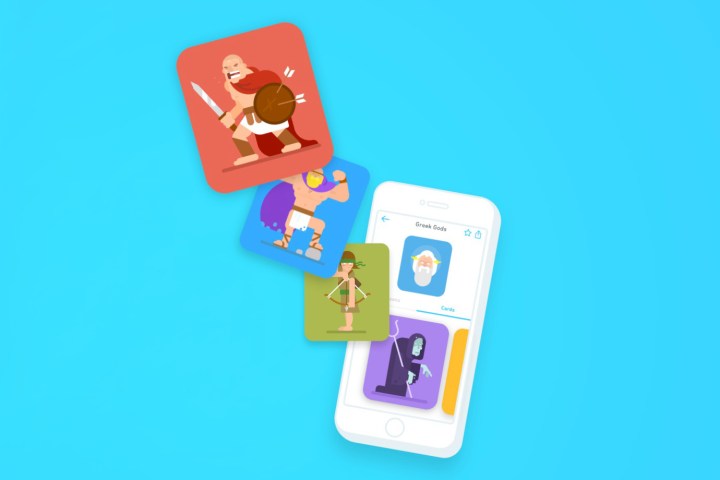
Duolingo has been around for several years, and it’s one of the most downloaded educational apps out there. It’s also one of the few free language learning apps that offers practical lessons in a variety of languages. Now the folks behind Duolingo are looking to tackle other subjects. Actually, they’re looking to tackle all subjects.
How will Duolingo expand? Through the humble flash card. Flash cards aren’t always the most exciting way to learn something new, but Duolingo is hoping to change that with Tinycards.
Tinycards, which launched on iOS last year and Android this month, is built like a kind of game. You unlock new levels as you go and fill up a strength bar by answering cards correctly, and earn bonus rewards by besting smart algorithms that adapt to your progress.
Tinycards includes more than 200,000 custom flashcard decks on topics ranging from geography and art history to the anatomy of Pokémon, and you can contribute decks yourself if you can’t find a deck pertaining to the topic you’re trying to learn about.
It won accolades last year for its design. In December 2016, Apple named Tinycards a top 10 best iPhone app of 2016.
“Duolingo redefined the way millions of people learn languages by making it fun, effective and free,” co-founder Luis von Ahn said in a statement.
“We’re excited to bring that experience to flashcards in order to help school kids suffering through memorization for tests. We also hope this will motivate adults to learn new topics to enhance their lives.”
If you’re interested in checking it out, Tinycards is available to download on iOS and Android.
Updated to reflect the release of Tinycards for Android.







